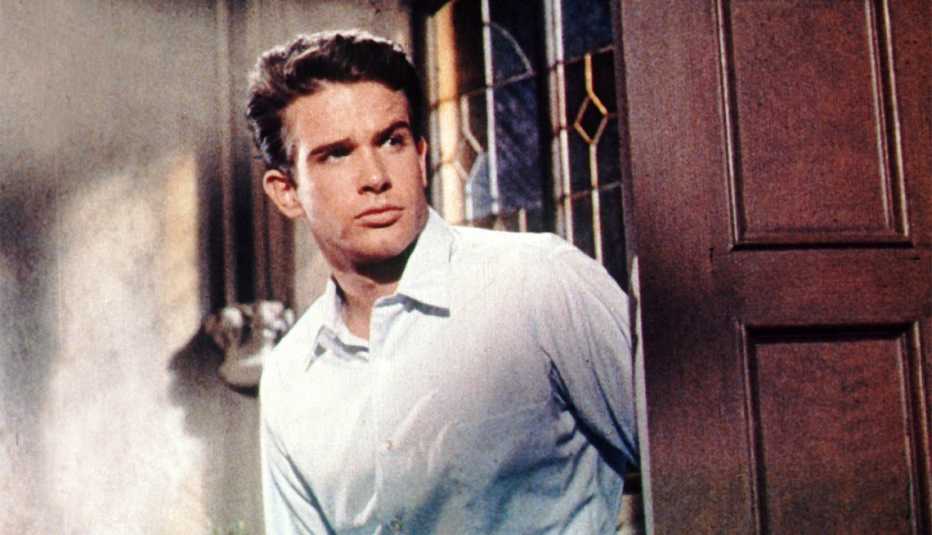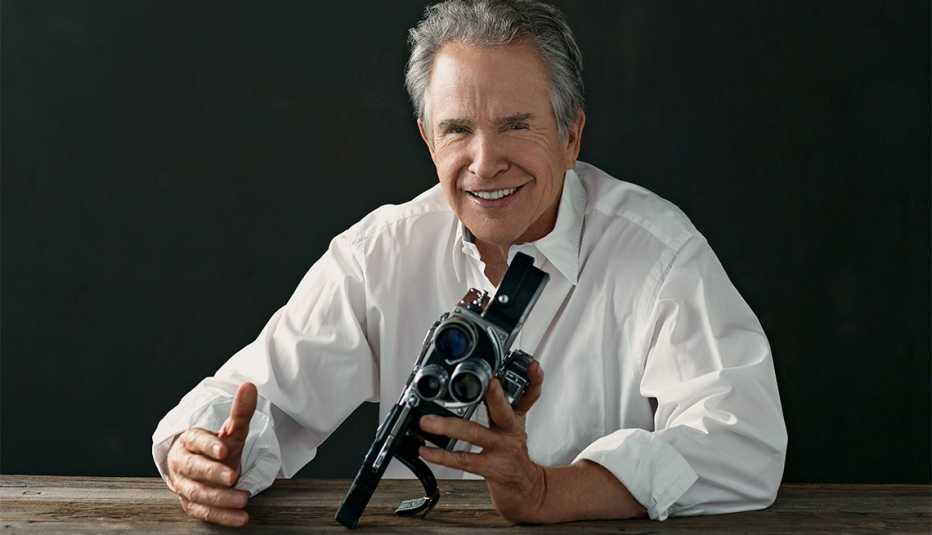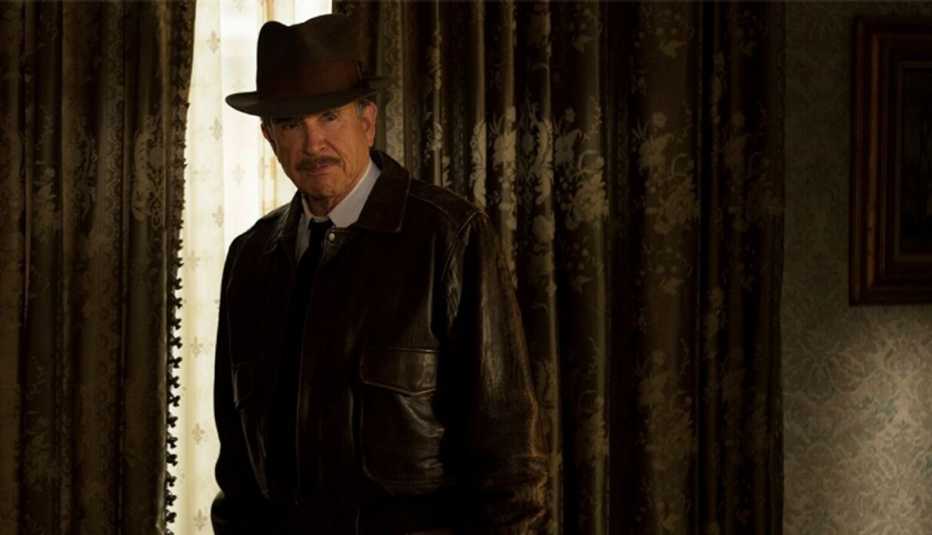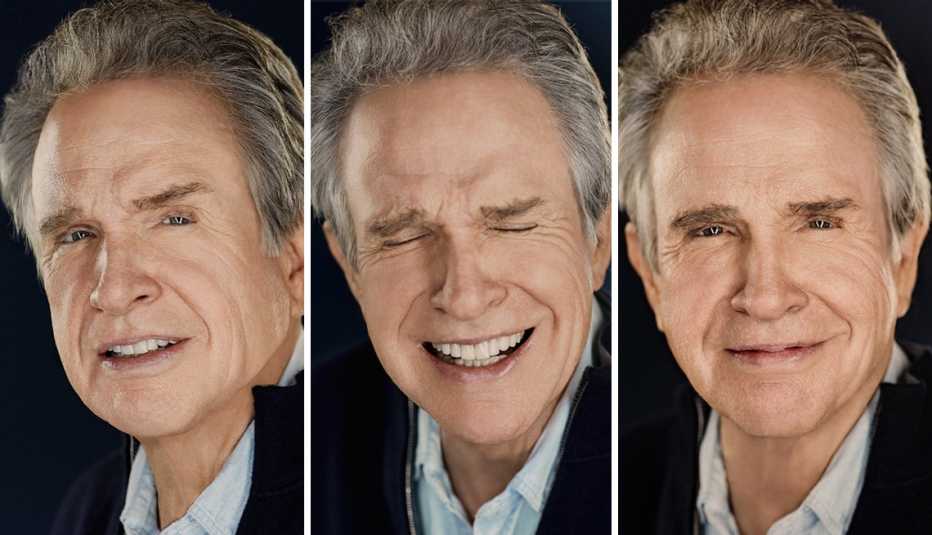Staying Fit
(Video) What I Learned: Warren Beatty and Alden Ehrenreich: Actors Warren Beatty and Alden Ehrenreich discuss what they learned from each other while filming the movie "Rules Don't Apply" and what they discovered about themselves in the process
"I have been famous for a long time."


AARP Membership— $12 for your first year when you sign up for Automatic Renewal
Get instant access to members-only products and hundreds of discounts, a free second membership, and a subscription to AARP the Magazine.
This is Warren Beatty's explanation for many things I am about to hear: for his understanding of people's desire to reach out to him, for patience, for privacy, but most of all for his exasperating ambivalence about me and this two-day transaction we've embarked upon. He hates being interviewed — hates it, though he denies hating it — but after almost two decades of virtual public silence, he is willing to speak.
That's because he's just finished a new movie, Rules Don't Apply, which stars Warren Beatty. It was produced by Warren Beatty. It was written by Warren Beatty — and directed by Warren Beatty. I should add that this interview, too, is by Warren Beatty, because he says nothing he does not want to say. He is a fan of control and precision in his speech: He quibbles over imprecise words, bats away "not quite" phrases and praises sentences that are accurate. He seems to be always taking notes on his own reactions, which probably contributes to a sense of dreaminess that he gives off. It's as if he's always listening to himself as he talks. Spend a little time with him and it's easy to see how Carly Simon, briefly a lover, was inspired by him to write "You're So Vain": You probably think this song is about you.
We meet for lunch at the Sunset Tower Hotel in L.A.; he's got the healthy salad but steals bites of my greasy sliders. Even here, where celebrities grow like kudzu, the staff keep making unnecessary pit stops to chat him up. Each time someone drops by, he stops eating, folds his arms and listens. At 79, Beatty is lean and graceful but makes no artful efforts to look young. His hair is mostly gray, his skin weathered, and he wears a beige windbreaker so frayed I wonder aloud if it's one of those good-luck pieces of clothing guys can't part with. ("No, but look at these pockets. It's got great pockets," he says.) Unlike 95 percent of the famous people I've interviewed, he is deeply curious about other people.
Yes, he has been famous for a long time, since his first starring role, in Splendor in the Grass in 1961. His fame has given him entrée into the lives of everyone and anyone; there is hardly any figure on the world stage over the past 50 years that Beatty hasn't met, dined with, perhaps made love to, as the stories go. But at the same time, he is frightened, even contemptuous, of fame and of that part of him that may make some sort of calamitous misstep — a betrayal of family or loved ones — in service to the actor's weakness. And what is this weakness, exactly?
Beatty takes off the '70s aviators, fixing me with those teal eyes. He quotes the famous explanation Laurence Olivier gave when asked why actors do what they do: "Look at me, look at me, look at me!"
Of course, we've never been able to help looking at Warren Beatty. And now we are looking again.
At the movie screening where we first met, I asked him why it had been 18 years between this and his last film. "Because," he says, "I'm slow at everything I do." Then he smiled. And suddenly I wasn't thinking about the movie anymore.


Wait, where was I? Oh, yes, the movie. Rules Don't Apply follows Howard Hughes through a period when the eccentric, reclusive billionaire, then running RKO Pictures, becomes even more eccentric and reclusive. Although Beatty, as Hughes, dominates the film with his outsize performance, at its heart the movie is a tender romance. A Hughes starlet, played by Lily Collins, and a rising assistant in the Hughes organization, played by Alden Ehrenreich, fall in love. Constrained by their religions and their shame about sex, the troubled relationship is played out against the background of Hughes' casting couch, and his disintegration.
The consequences of American Protestant puritan sexual guilt and repression, which I feel is the theme of ['Rules Don't Apply'], is something I have a strong interest in.”
Beatty had been interested in Hughes, whom he never met, for many years, ever since staying at the Beverly Hills Hotel at the same time Hughes was in residence. The tabloid reporters Beatty thought had been sent to spy on him were, in fact, Hughes functionaries. Hughes kept multiple suites and bungalows there, and no one, not even the hotel staff, knew where he was at any given time. "Right away I thought, This is very unusual. It amused me, the idea of a man being so public yet so private," Beatty says. Typically, he considers his own emotions from a remove. "I was fascinated by my fascination with this person."
"Howard Hughes was the first person I met when I came to Hollywood," says Beatty's older sister, the actress Shirley MacLaine. "Hughes had this theatrical mysteriousness that Warren always found intriguing."
Henry Warren Beaty (he added the extra "t" so people would stop saying " Beat-y ") was born in 1937 and grew up in Arlington, Va., the son of two educators. Though Hughes came from enormous wealth, the parallels between him and Beatty seem obvious: the charm, the omnivorous curiosity, the need to dabble in politics without running. (The actor spent a year campaigning for George McGovern; he was with Bobby Kennedy the day before he was shot. It is no coincidence that the recurring music in Rules Don't Apply, the Adagietto movement from Mahler's Fifth Symphony, was performed at Kennedy's funeral.) And, of course, there's Beatty's self-confessed control-freak nature and, in his single days, his gargantuan appetite for women.
Naturally I assumed Beatty identified with Hughes. I assumed wrong.


"The protagonist in Rules Don't Apply is the young guy Frank that Alden Ehrenreich is playing, who comes to Hollywood in 1958," Beatty begins. "I — and the character of Frank — come from a Protestant American background. The consequences of American Protestant puritan sexual guilt and repression, which I feel is the theme of the movie, is something I have a strong interest in."
"So you're saying you — you? — felt hindered by your sexual puritanism when you came to Hollywood?" I ask.



































































More on entertainment
Jessica Lange Can Finally Relax
After collecting every major acting award, is it time to kick back?